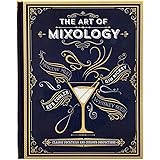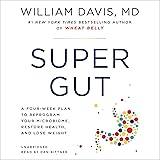The decision to adopt a vegan lifestyle often stems from deeply held personal beliefs or a pursuit of optimal health. As noted in the accompanying video featuring Peter Attia, it’s crucial to understand the underlying motivations for embracing a vegan diet. Are you primarily driven by ethical convictions regarding animal welfare, or is your choice rooted in the perception that animal products inherently compromise health?
For many, the distinction between these two drivers is paramount. While personal ethics, taste preferences, or philosophical stances provide compelling and valid reasons to avoid meat, assuming that abstaining from all animal products is the *only* path to good health is, as Attia suggests, a misconception that warrants deeper examination and education within the realm of nutrition science.
Deconstructing the “Why Are You Vegan?” Question
When individuals choose a vegan diet due to ethical considerations—whether it’s an aversion to the thought of animal slaughter, a dislike for meat’s texture, or a profound commitment to animal rights—these are wholly legitimate and respected reasons. Such motivations form a robust foundation for dietary choices, and with careful planning, a well-formulated vegan diet can certainly support health.
Furthermore, navigating a vegan diet for these reasons means focusing on nutrient adequacy, ensuring essential vitamins and minerals typically found in animal products are sourced effectively from plants or through supplementation. This approach prioritizes personal values while addressing nutritional needs strategically.
Ethical Veganism vs. Health-Focused Veganism
The ethical vegan prioritizes animal welfare and environmental impact, designing their diet to minimize harm. This often involves extensive research into plant-based alternatives and a commitment to a lifestyle that extends beyond food choices. Their success hinges on meticulous meal planning to avoid common deficiencies.
Conversely, those who adopt veganism purely for perceived health benefits often operate under a different premise. They might believe that all animal products are detrimental to human health, leading to chronic diseases or poor longevity outcomes. This perspective, however, frequently overlooks critical nuances in nutritional science and the bioavailability of nutrients.
Addressing Misconceptions: Animal Products and Health Outcomes
The notion that eating animal products automatically makes a diet unhealthy is a simplification that ignores the vast body of nutritional research. In reality, many animal products are nutrient-dense powerhouses, offering essential macronutrients and micronutrients that are often more bioavailable than their plant-based counterparts.
Imagine if you excluded nutrient-rich foods like wild-caught salmon, which provides omega-3 fatty acids vital for brain health, or grass-fed beef, a rich source of highly absorbable iron and vitamin B12. Furthermore, pasture-raised eggs are a complete protein source, offering choline crucial for liver function and brain development.
The Role of Nutrient Density and Bioavailability
One of the key concepts often overlooked in generalized dietary advice is nutrient density. This refers to the amount of beneficial nutrients per calorie in a food. Many animal products, such as organ meats like liver, are incredibly nutrient-dense, providing concentrated amounts of vitamins (A, D, E, K), minerals (iron, zinc), and B vitamins.
Bioavailability, another critical factor, describes how well the body can absorb and utilize nutrients from food. For instance, heme iron from animal sources is absorbed significantly more efficiently than non-heme iron from plant sources. Similarly, the vitamin B12 found exclusively in animal products is essential for neurological function and cannot be reliably obtained from plants without fortification or supplementation.
Consider the complexity of protein. Animal proteins are ‘complete’ proteins, containing all nine essential amino acids in the right proportions for human needs. While plant-based diets can achieve this by combining various sources, it requires more deliberate planning and understanding of complementary proteins.
Designing a Healthy Diet: Beyond Vegan Labels
Regardless of your dietary philosophy, the ultimate goal should always be a diet that supports long-term health, metabolic well-being, and vitality. This means focusing on whole, unprocessed foods, ensuring adequate intake of macronutrients (protein, fats, carbohydrates), and a full spectrum of micronutrients.
For those committed to a vegan diet for ethical reasons, successful navigation involves strategic planning to compensate for nutrients predominantly found in animal products. This might include supplementing with B12, vitamin D, omega-3s (EPA/DHA from algae), iron, zinc, and iodine, as well as carefully combining plant proteins.
Optimizing Health with or Without Animal Products
An optimally healthy diet, whether vegan or omnivorous, emphasizes nutrient-rich, minimally processed foods. It prioritizes sufficient protein intake, incorporates healthy fats, and includes complex carbohydrates from a variety of plant sources.
For individuals who include animal products, the focus shifts to sourcing high-quality options—think pastured poultry, grass-fed ruminants, and wild-caught seafood. These choices often boast superior nutrient profiles and reduced exposure to undesirable compounds compared to their industrially farmed counterparts.
Ultimately, a deep understanding of individual nutritional needs and the science behind food choices empowers anyone to construct a healthy, sustainable diet. The question of “Why are you vegan?” opens a dialogue not just about dietary labels, but about the nuanced intersection of ethics, biology, and evidence-based nutrition.
Unpacking Your Vegan Inquiries
Why do people choose a vegan diet?
People choose a vegan diet primarily for two main reasons: deeply held ethical beliefs about animal welfare, or the perception that avoiding animal products leads to optimal health.
What is the difference between ethical veganism and health-focused veganism?
Ethical vegans prioritize animal welfare and environmental impact, while health-focused vegans adopt the diet mainly due to the belief that all animal products are detrimental to human health.
Are animal products always unhealthy?
No, the article states this is a misconception; many animal products are nutrient-dense and offer essential nutrients that are often more easily absorbed by the body.
How can someone on a vegan diet ensure they get all necessary nutrients?
Vegans need careful meal planning, potentially including supplementation for nutrients like B12, vitamin D, omega-3s, iron, zinc, and iodine, which are often found in animal products.











